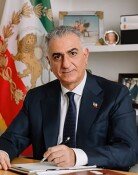Is the summit affecting Seoul ministerial talks?
Is the summit affecting Seoul ministerial talks?
Posted March. 14, 2001 13:05,
North Korea`s abrupt decision to put off the scheduled fifth inter-Korean ministerial talks in Seoul set off wild speculation among officials and analysts here. North Korea`s statement that it would not attend ``for a variety of reasons`` provided scanty clues as to the actual motive for the decision.
The Seoul government was unsure of what caused the flip-flop but denied speculation that Pyongyang was signaling its displeasure with the outcome of the latest ROK-U.S. summit in Washington. North Korea would likely have followed past practice and made a stronger statement if it was dissatisfied at the results, officials said.
A highly placed source said the reported ill health of Jon Kum-Jin, chief North Korean delegate to the talks, might have caused the postponement, suggesting personal, rather than political, reasons for the decision.
Another official said the ambiguity of North Korea`s statement indicated an unusual situation within North Korea. ``They would not have discussed the itinerary for their delegation`s visit at Panmunjom on Monday had they been offended by the Washington summit,`` he said.
However, most independent experts believe the results of President Kim Dae-Jung`s meeting with U.S. President George Bush had influenced Pyongyang`s decision to delay the planned Seoul talks. They said North Korea probably needed time to hammer out new negotiating strategies after the U.S. hardened its stance. Pyongyang may be showing displeasure at certain unfavorable remarks made by American officials, some observers said.
North Korea may have felt that President Kim chose to focus more on the Seoul-Washington alliance than on inter-Korean ties, and developed misgivings about Seoul`s commitment to the June 15 joint statement made in Pyongyang. On the eve of North Korea`s notification that it would not attend the meeting, Radio Pyongyang repeated a strong message calling for ``ethnic partnership`` between Koreans and ``against foreign powers.``
Jeon Seong-Hoon, research fellow at the Korea Institute for National Unification, said North Korea had yet to work out a response to developments at the Kim-Bush summit. It will take some time for North Korea to respond effectively to possible changes in the situation in South Korea, Sangji University professor Seok Dong-Man said.
Another interpretation holds that Pyongyang is not yet prepared to make detailed plans for the proposed Seoul visit of North Korean leader Kim Jong-Il, plans that were to be discussed at the ministerial talks.
Sejong Institute researcher Lee Jong-Suk observed that North Korea probably was not ready to discuss the second inter-Korean summit and that it would likely table its plan during the next ministerial meeting.
Others said North Korea expected to gain little from the scheduled Seoul talks but knew it would face many demands from South Korea. North Korea might have concerns over the Seoul government`s position that Pyongyang`s request for electric power should be discussed only after a joint field survey in North Korea. There might also be concerns over the foundering of Hyundai Group`s Mt. Kumgang tour program.







